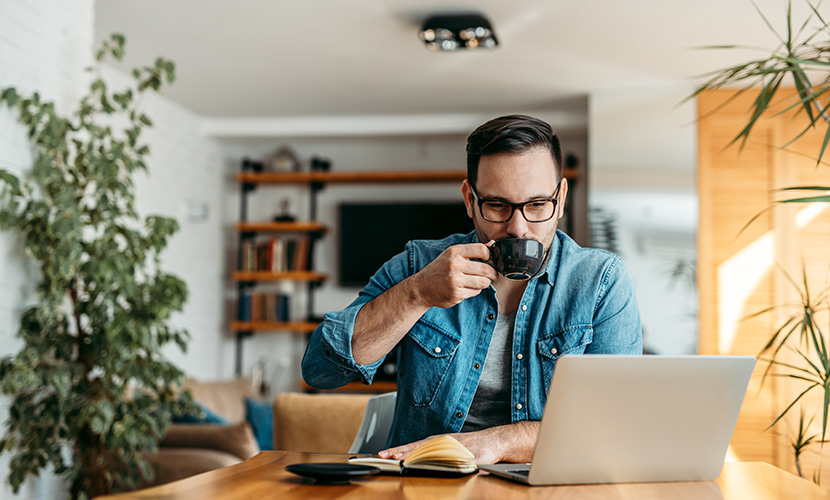During the COVID-19 pandemic, it’s often easy to lose track of time – since for many of us, our daily schedule and commute have been replaced by being quarantined at home in an unchanging environment. After several months of a different schedule and daily responsibilities, it can be more uncomfortable than we previously imagined. Parts of our routine and structure before the pandemic represent patterns and expectations that can be important for our mental health.
The importance of a routine.
Maintaining structure can work wonders for mental wellbeing. Routines are important because they create structure (how we start our day, brushing our teeth, etc.), they provide a sense of accomplishment (there is a start and end), and offer an opportunity for self-care, predictability and a way to tolerate uncertainty. For these reasons, routine can have a positive impact on us and assist with managing feelings of anxiety, stress and being overwhelmed.
How are things different now?
Whether you have been working at home, remotely at another location, or are continuing to go into an office, the coronavirus has changed everyone’s routine. Many people were focused on the “balance” of busy schedules and with home and work. Now, it appears there is more of a blend between home, work, daily responsibilities and parenting.
Traditional roles within the home have also changed – with new demands related to household responsibilities, childcare, distance learning, and caring for aging adults or those with pre-existing conditions. These changes can make it more difficult to have boundaries between role responsibilities, which were often previously in place and helped with balance.
Reinvent your routine.
To develop a new routine, it is important to find ways to pair what is familiar and worked well in our lives prior to the coronavirus pandemic, with our current situation. Some examples of this include:
- Waking up the same time every day – even if you don’t have anything scheduled.
- Keeping to a daily exercise schedule. If you are working from home, you can establish an exercise routine during the time you normally would be commuting.
- Engaging in a “mental commute” that transitions yourself from home to work and vice versa.
- Dressing for the day – even in casual and comfortable attire.
- Eating meals at regular times. If you are home with kids or other family members, eat some or all meals together.
- Limiting your use of electronic devices and exposure to the news.
- Going to bed at the same time each night.
- Considering a new, safe fall or winter hobby that can be done outdoors.
- If your kids are doing distance learning, taking lunch and recess with them to reconnect and get extra activity – if your schedule allows.
- Creating separate “zones” in your home to differentiate work, school, leisure or community areas to assist with routine and boundaries.
It's not all bad.
For many people, change can be scary, but it also can be good for us and teach a variety of things such as:
- How adaptive and flexible we can be with our routine and roles.
- How to tolerate fear and change.
- How to take the time for new hobbies, self-care and volunteer activities.
- Take the opportunities for exercise and new healthy routines that you previously did not have time for.
- Find gratitude in small, yet significant ways throughout our routines.
- Strengthen ties inside your “pod” by spending more time in relationships.
Our days are going to continue to look different for a while, so we need to remain flexible to best handle the situation. Implementing some structure can go a long way in helping us and our families deal with the uncertainty and put us in the best position for whatever comes next.


